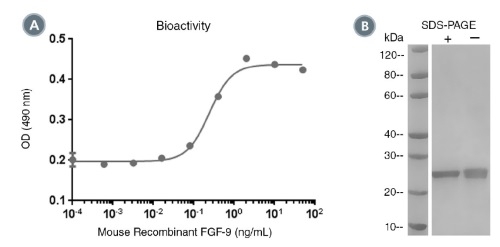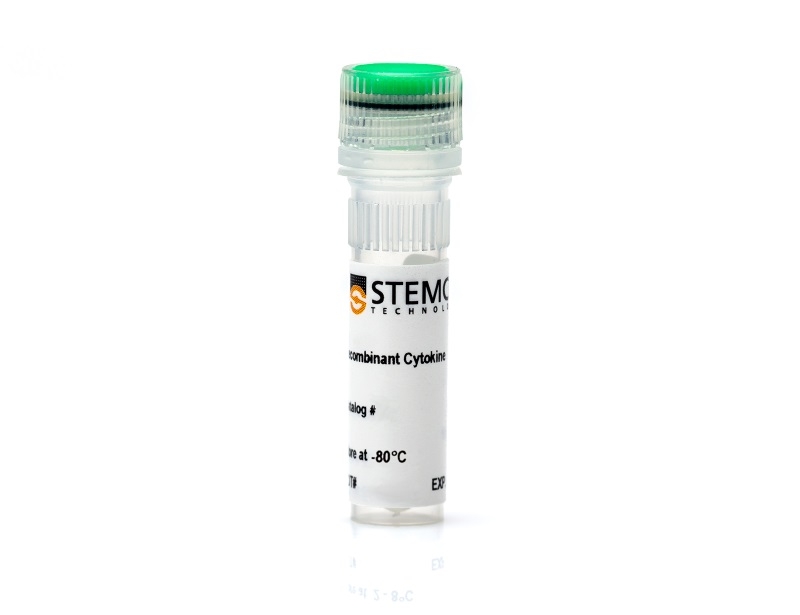概要
技术资料
| Document Type | 产品名称 | Catalog # | Lot # | 语言 |
|---|---|---|---|---|
| Product Information Sheet | Mouse Recombinant FGF-9 | 78176, 78176.1 | All | English |
| Safety Data Sheet | Mouse Recombinant FGF-9 | 78176, 78176.1 | All | English |
数据及文献
Data

(A) The biological activity of Mouse Recombinant FGF-9 was tested by its ability to promote the proliferation of 3T3. Cell proliferation was measured using a fluorometric assay method. The EC50 is defined as the effective concentration of the growth factor at which cell proliferation is at 50% of maximum. The EC50 in the example above is less than 5 ng/mL. (B) 2 μg of Mouse Recombinant FGF-9 was resolved with SDS-PAGE under reducing (+) and non-reducing (-) conditions and visualized by Coomassie Blue staining. Mouse Recombinant FGF-9 has a predicted molecular mass of 23.4 kDa.

 网站首页
网站首页




